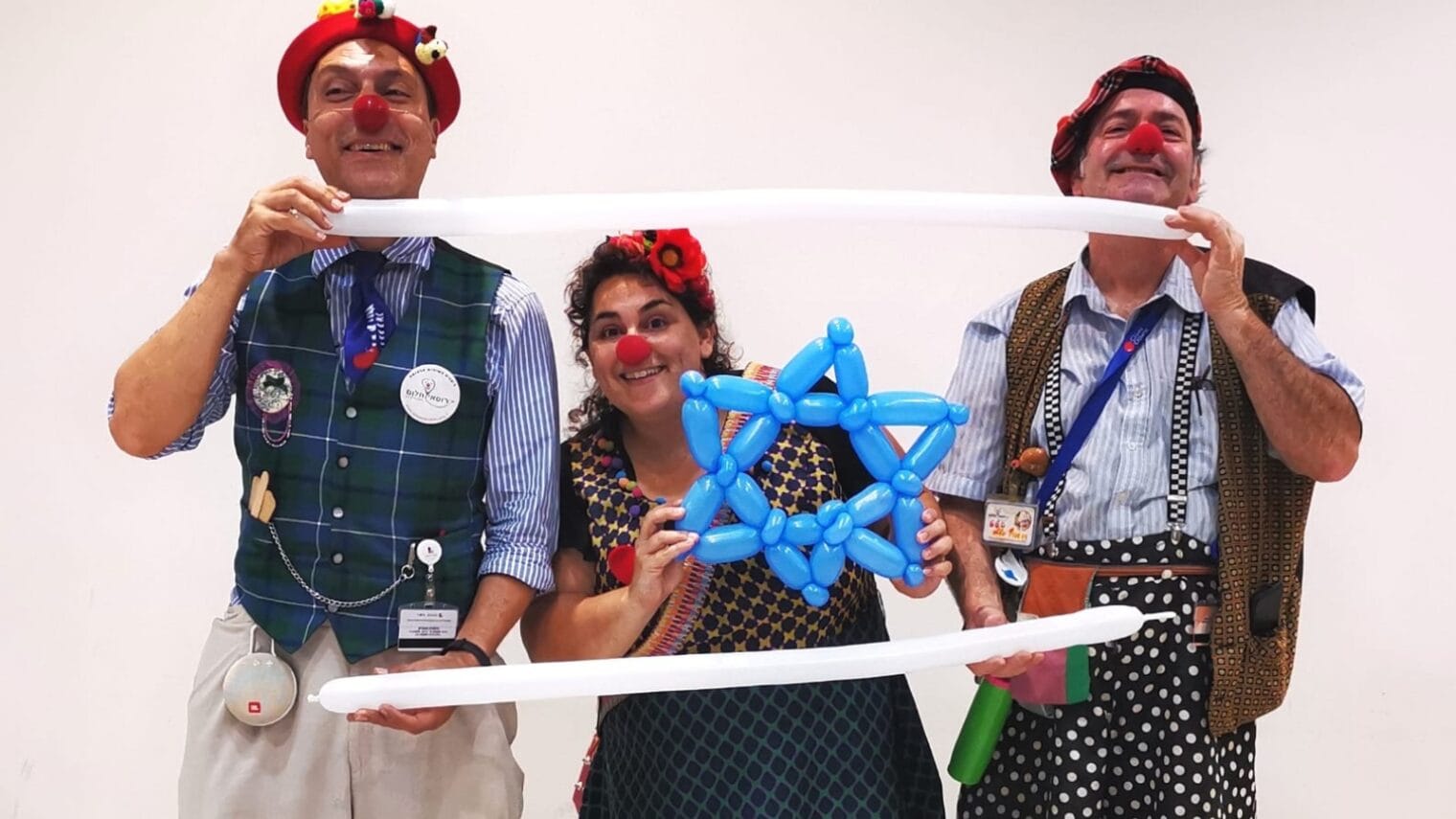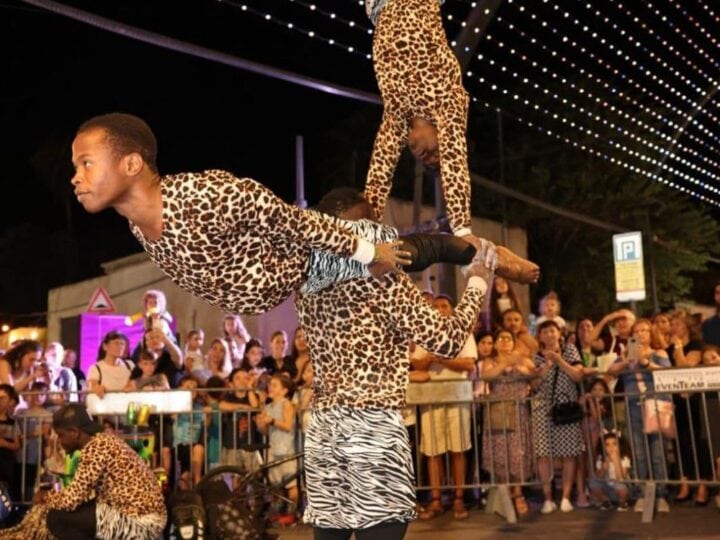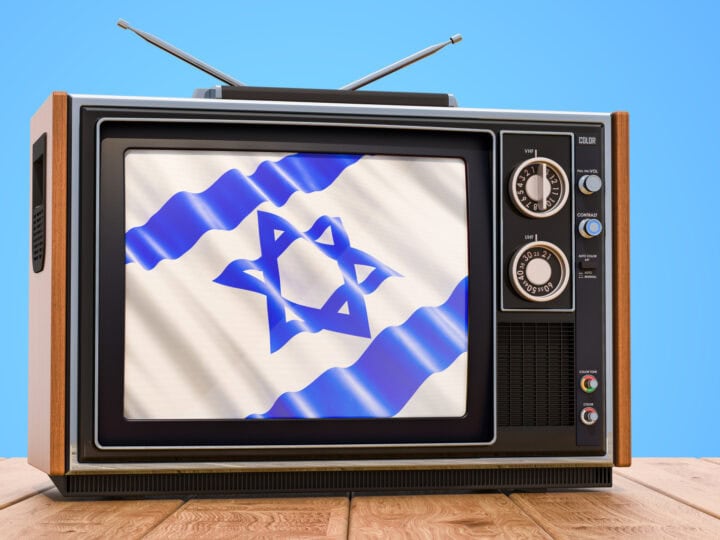This month, Nimrod “Max” Eisenberg marks his 20th anniversary as a professional medical clown with The Dream Doctors Project – an organization working in 32 Israeli hospitals and at humanitarian crisis scenes across the globe.
There is no time to celebrate his milestone.
Instead, Eisenberg is pitching in, along with other Dream Doctors, to ease the suffering of thousands of Israelis hospitalized and displaced since the Hamas assault on southern Israel, which began on October 7.
“Since the tragic events of this time, we’ve gathered our people to be a part of the healing and coping with the trauma as it unfolds,” says Eisenberg, head of content and professional development at Dream Doctors and a veteran of many humanitarian missions overseas.
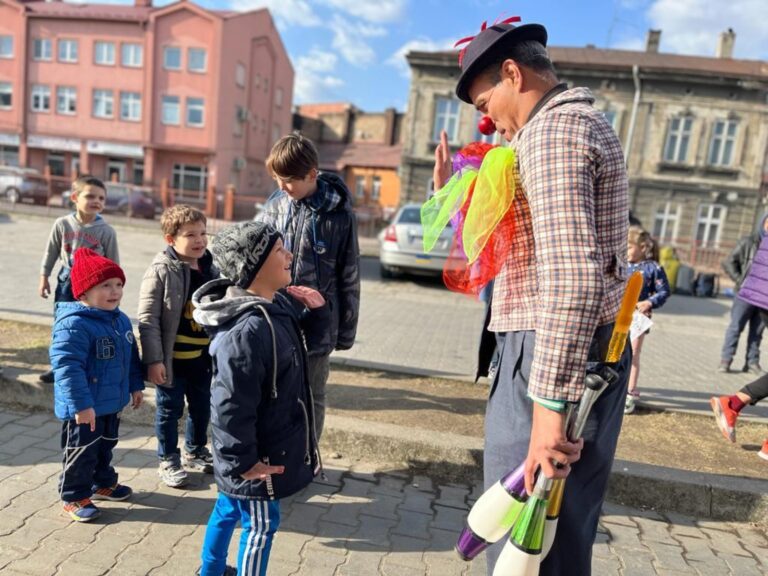
“Hospitals in the south and up to Tel Aviv received many wounded, both children and adults. Our clowns anyway work in every hospital, so the staff knows them well and they were able to intervene deeply right away to offer emotional support services.”
Operation Healing Heart
Tsour Shriqui, CEO of The Dream Doctors Project, lives near the Gaza Strip.
“We had to pack up and head north quickly to seek safety and a bit of normalcy for our children,” Shriqui wrote to supporters. “It’s an uncertain situation, and we’re not sure when we’ll be able to return.”
Putting aside his personal trauma, Shriqui realized that his 105 Dream Doctors needed to mobilize in response to the emotional impact of the devastating attacks.
He launched Operation Healing Heart, gathering teams of Dream Doctors to support the injured and those in shock at medical centers throughout the southern region.
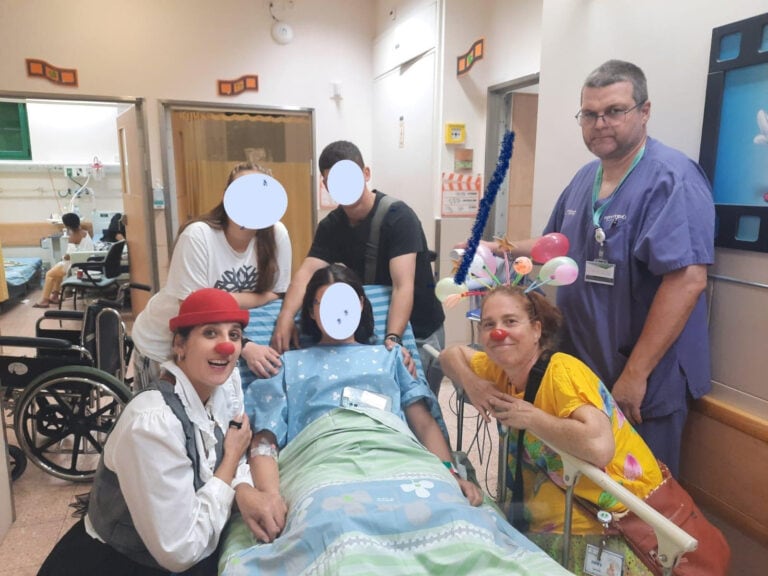
In addition, pairs of clowns are coming each day to six locations to which southern families were evacuated.
“We don’t do shows; we find the children who need emotional support the most — those who are quiet and hiding — and we improvise and play with them to help these children do something with the emotions that are bottled up,” says Eisenberg.
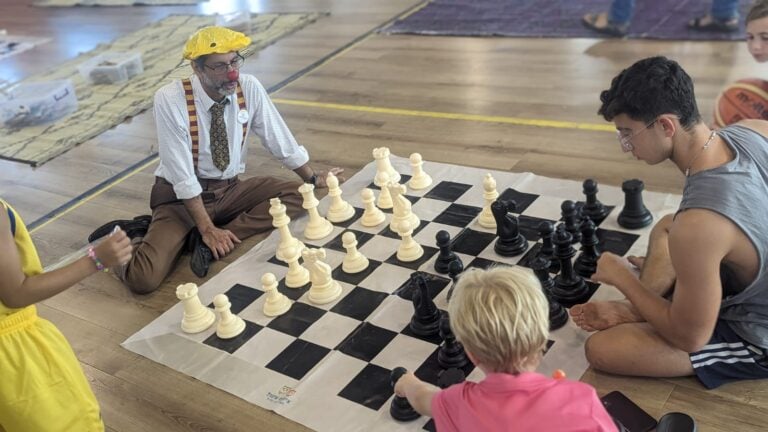
“With our extensive experience,” says Shriqui, “we’re committed to reaching as many people as possible quickly, creating pockets of peace and comfort in this distressing situation.”
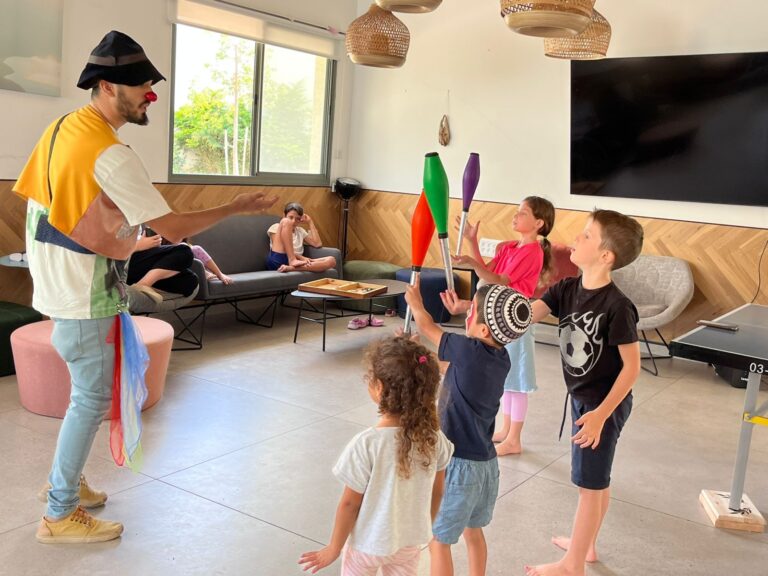
One traumatized family
On October 9, a family of five from Kibbutz Nir Oz was transferred to Tel Aviv Sourasky Medical Center from a field clinic in the south.
Only the 14-year-old son was injured, but the whole family was staying with him because they had nowhere else to go. Hamas terrorists had burned down their house.
When a team of Dream Doctors walked into the room, the 16-year-old daughter laughed and her eight-year-old sister told the clowns to go away.
“We asked her, ‘How fast should we go?’ We let her order us around and we began bumping into walls in our hurry to leave. Slapstick humor bypasses our intellect and makes us burst out laughing automatically,” says Eisenberg.
Sensing that the family was warming to them, the clowns introduced themselves and asked the children their names.
“The youngest immediately told us, the boy didn’t say anything, and the teenage sister said, ‘My name doesn’t matter,’ so we played with that. We said, ‘Nice to meet you, My Name Doesn’t Matter!’
“These techniques enable us to use empathy and positive humor to reach the traumatized people directly at the time of trauma,” Eisenberg explains.
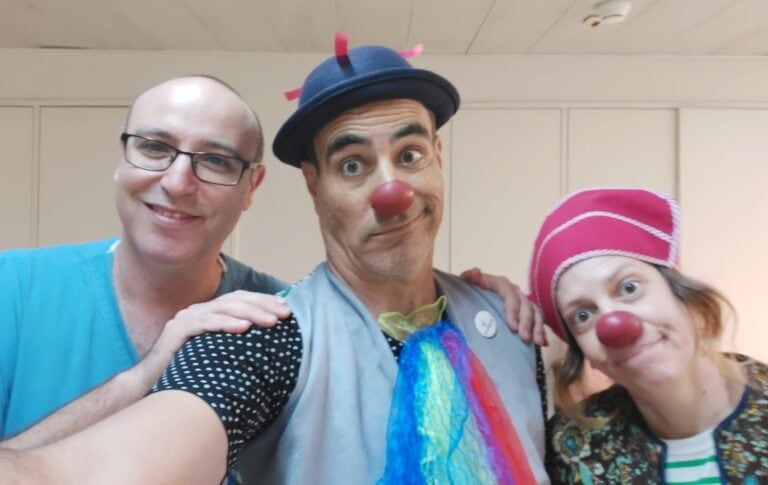
“We were there 20 or 30 minutes and by the end, all three children were laughing because they were controlling us. Our goal is not to artificially make people laugh; that’s not what we do,” he emphasizes.
“Everyone has the potential for courage and positive energy. We bring that out in traumatic times, restoring hope, resilience and a sense of control. That’s what medical clowns do.”
A soldier who lost a leg
In the same hospital, the Dream Doctors encountered a soldier who’d lost a leg.
“The atmosphere around him was heavy and we entered with great respect. We could see that his family and close friends there were devastated.”
The clowns said nothing to the group around the soldier. They paid attention instead to an older woman within the group’s line of sight who was being discharged that day.
“She saw us and started talking to us about going home. We said, ‘Hey, if we take you home, what food will you make for us?’ She started laughing and it was clearly laughter of relief. Then we got even more colorful; we said we’ll have a dance party at her house,” Eisenberg recalls.
“Then her husband came along. He was relieved to see her laughing. We said, ‘We’re going home with her!’ And then we said, ‘Let’s make a video for your grandchildren!’
“All this time, the family and friends of the soldier were watching and starting to smile. That’s a technique we use. If someone needs you but is closed, you go to someone else nearby,” says Eisenberg.
“We continued with the grandmother until we saw the family was ready. We started talking to her about how this hospital is full of amazing, courageous people and maybe she should stay here with us. The humor became about the whole situation.”
And then two friends of the soldier came over and hugged the Dream Doctors.
“They wanted to take pictures with us and send them to their army unit to show we can still find hope and energy. This was unbelievable to me,” says Eisenberg.
For more information on Dream Doctors or to donate, click here.




